-
Features 80+ expert-designed practice questions with detailed explanations.
-
Covers key areas: physical examination, vital signs, and clinical assessment techniques.
-
Includes exam strategies and time management tips for optimal performance.
-
Offers realistic scenarios to bridge theory and practical application.
-
Aligned with University of Pennsylvania’s nursing curriculum standards.
-
Supports HESI and NCLEX-RN preparation with focused remediation tools.
-
Provides insights into the 2025 HESI Physical Assessment Exam structure.
Preview
Which patient does the nurse recognize as having the highest risk for ovarian cancer?
a. A 24-year-old nulliparous woman who has a history of multiple sexual partners
b. A 32-year-old woman who has had six live births and a history of human papilloma
virus (HPV) infection
c. A 55-year-old woman who reached menarche at age 12 and menopause at age 54
d. A 64-year-old nulliparous woman who has taken hormone replacement therapy for
eight years – – correct ans- -A This patient has no risk factor for ovarian cancer.
B This patient has a risk factor for cervical cancer (HPV), but not ovarian cancer.
C This patient has no risk factors for ovarian cancer.
D This patient has a risk factor for ovarian cancer.
The nurse correlates which factor to an increased risk of endometrial cancer in women
with early menarche or late menopause?
a. Total number of ovulatory cycles
b. Less hormone stimulation
c. Need for estrogen replacement in these patients
d. Extended duration of the menstrual cycle in these patients – – correct ans- -ANS: A
Feedback
A More ovulatory cycles increases risk. These risk factors represent an increased
cumulative exposure to estrogen.
B Hormone stimulation does not increase risk in endometrial cancer.
C Estrogen replacement does not increase risk in endometrial cancer.
D Extended duration of the menstrual cycle is not a risk factor.
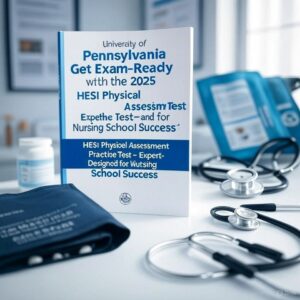
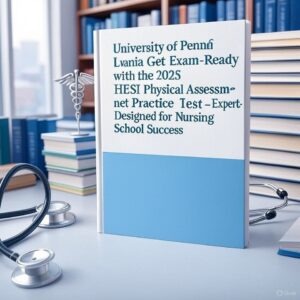


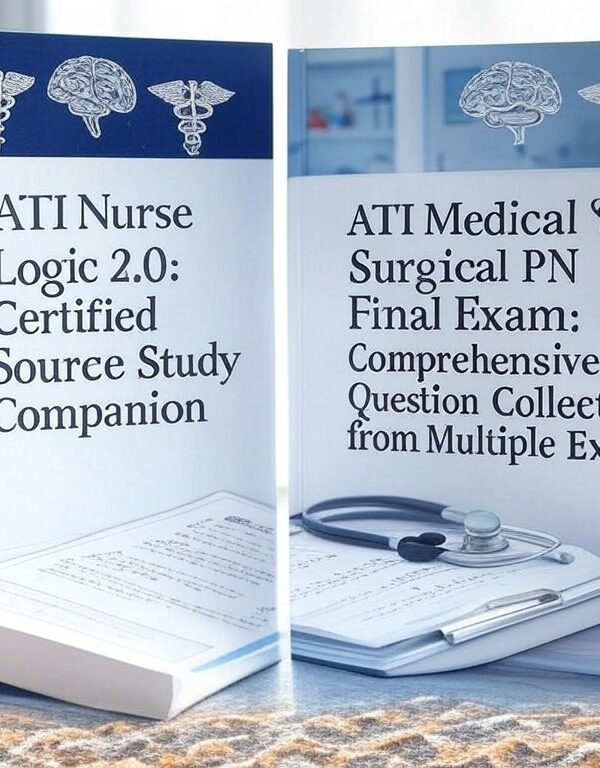


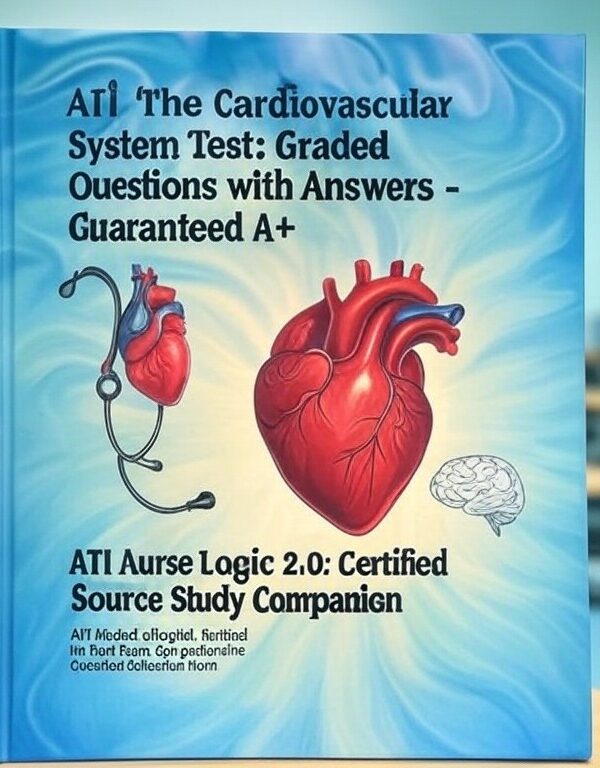


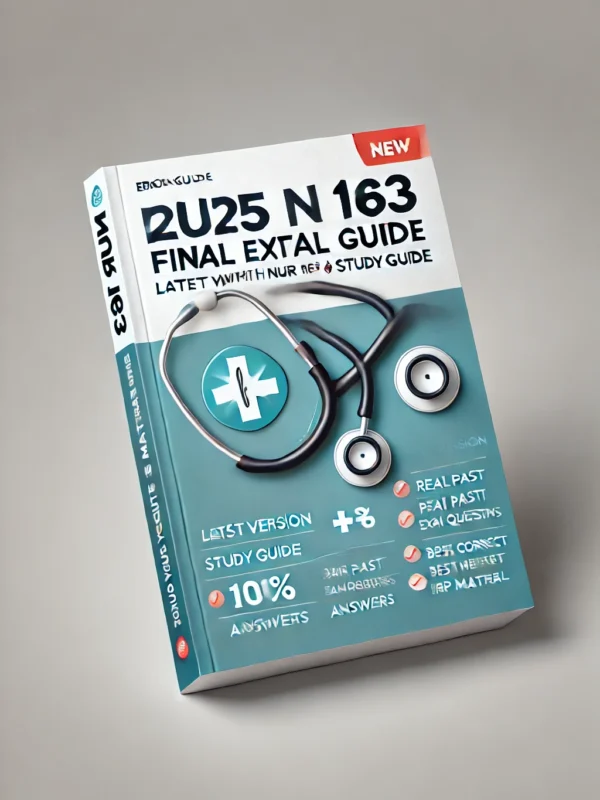
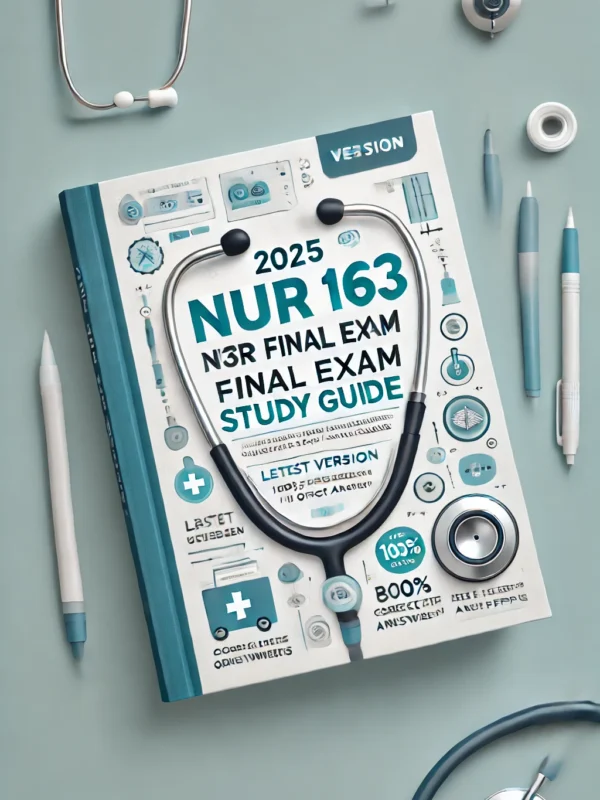
Reviews
There are no reviews yet.